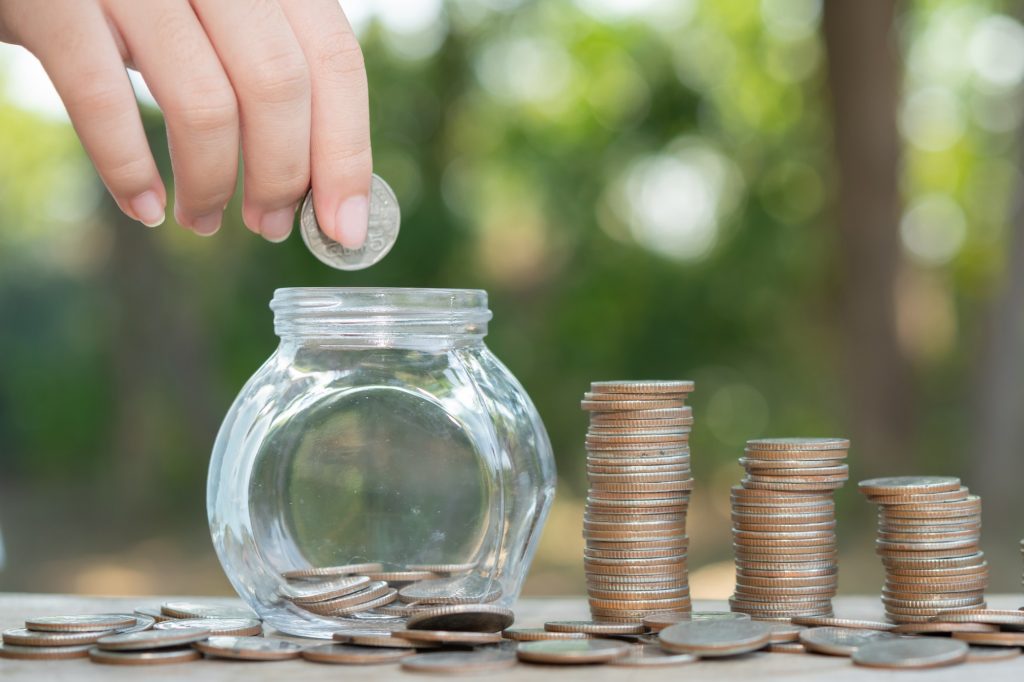Utility Costs - and How to Save
Utilize This Guide So Your Utility Bills
are Budget-Sized!
Homeownership comes with monthly expenses like water and electricity, as you likely know while looking for a home. These expenses can add up, but sometimes we don’t realize how much they add up. You can use this guide to get an idea of what to expect from average utility costs. Additionally, we will share some simple tips for reducing your monthly expenses.

Utilities
When you become a homeowner, you’ll be responsible for paying for natural gas, water, and electricity. It is becoming more common to refer to cable and internet services as utilities.
The factors that affect utility bills
There are many factors that influence utility costs. You often pay different amounts depending on where you live, what kind of house and appliances you choose, and even how much electricity you use.
- The location:
Utility costs are heavily influenced by your home’s location. You can experience increases or decreases in your heating and cooling bills depending on the weather, as well as local infrastructure affecting services like the internet and cable. You should ask about the average cost and availability of basic utilities based on the location of the home when you inquire about them.
- Efficient use of energy:
Home efficiency varies from house to house. It is possible to lose heat or cool air through drafty windows or an uninsulated attic, which forces a furnace or air conditioner to operate continuously. You may also incur higher payments if you buy an older HVAC unit compared to a newer, more energy-efficient model. You should evaluate the appliances in your home, including the washer, the dryer, the refrigerator, and the dishwasher, to ensure the home is energy efficient. You can determine their energy efficiency by checking for an Energy Star rating, which will usually yield a 10 to 20 percent improvement over models without an Energy Star rating.
- Layout and size of the home:
Heat and cooling costs increase with the size of the home. A home with an open floor plan is especially susceptible to this. Heat and cool air are trapped more effectively in homes with more rooms. By closing unused vents, you can direct more heat or cool air towards the rooms where it is needed.
- The Lifestyle:
In general, it’s a good idea to research the energy efficiency and average utility costs of a home, but ultimately if you pay more or less than the average, it comes down to your daily habits. If you live in a hot climate, do you wish your lawn was lush and green? There is a good chance that your water bills will be higher than most. When it gets cold, do you wear extra layers to stay warm? In order to save on natural gas or electricity, you might be able to keep your thermostat at a lower temperature. Utility bills are often determined by how much you use them in your day-to-day life.

Natural Gas
The main use of natural gas in your home is to heat water and heat your home. Gas bills can be as low as ten bucks a month if you live in a warm area year-round.
Cost per month on average:
The cost per thousand square feet is approximately $11
(Energy Information Administration: https://www.eia.gov/naturalgas/monthly/pdf/table_03.pdf)
Cost-saving tips
- Invest in a new furnace:
The energy efficiency of an Energy Star unit should be about 15 percent better than an older furnace (say 15 years or more in age).
- Keep the temperature below 70 degrees:
Your thermostat should be set below 70 degrees if the weather is cold in your area. Savings of 5 percent can be achieved by lowering your thermostat by one degree.
- Make sure your water heater is adjusted:
It is recommended that the thermostat be set at 120 degrees by the Department of Energy. You might be able to save money on your monthly utility bills if you lower your water heater’s temperature from the default setting of 140 degrees.
Electricity
$0.12 per kWh
Get an idea of your annual utility bill with the Department of Energy’s Appliance Energy Calculator.
Here are some tips on how to save money
- Unplug all devices:
Even after being turned off, many electronic devices consume power. In addition to televisions, computers and kitchen appliances, phone chargers are also included. Unplug devices before you go to work or turn them off at night to save electricity. Alternatively, plug devices into power strips and switch them off easily instead of directly plugging them into wall outlets.
- Keep cool for less:
To reduce power consumption, use the AC units efficiently. It will cool your home gradually during your absence, rather than launching into overdrive when you return. A programmable thermostat can save you thousands in the long run. Keep your filters clean once a month so your unit doesn’t have to work harder than it should.
- Consider going non-electric:
Don’t be afraid to use “old-fashioned” methods to save power. Whenever possible, replace lamps with natural light. You should hang your laundry instead of drying it. Open the blinds during cold weather to let the warm air in, and close them during hot days to block the sun.
Water
Water consumption in the United States averages 88 gallons per day. In addition to washing clothes, taking showers, flushing toilets, running faucets, and maintaining lawns, trees, shrubs, etc., we also use a lot of water to maintain them. Many of our daily activities require a large amount of water, but we can always conserve it and keep costs down.
Average Cost Per Month:
$15-$77 per month
(Circle of Blue survey: https://www.circleofblue.org/2016/water-management/pricing/infographic-average-u-s-household-water-use-bills-2015-16/)
Here are some tips on how to save money
- Wash with less water:
Showers typically use much less water than baths since they do not require as much water to fill. Reduce your water usage by half with a low-flow showerhead. Whenever you brush your teeth or shave, avoid running the faucet. To clean or rinse your razor, fill a cup with water.
- Water shouldn’t be wasted:
If you plan to take a shower, don’t forget to bring a bucket! Your sustainable yard can be watered or cleaned using the water you catch. It is also possible to collect rainwater by putting a bucket outside.
- Utilize water as efficiently as possible:
Before running a cycle, make sure your dishwasher or washing machine is full. Try to avoid the permanent press cycle when you wash your clothes as it consumes five extra gallons of water. Aerators should be installed on all faucets. In addition to reducing water waste, it increases pressure and improves the performance of your faucet.

A cable and internet connection
The cost of using the Internet can be quite high. Cable and internet service can cost more than $200 per month if you want both. When there are only a few service providers available, your options are limited. Here are some ways to save if you have any options.
Average Cost Per Month:
Internet: $50 during promotional period / $60 after promotion expiration
(HighSpeedInternet.com: https://www.highspeedinternet.com/resources/how-much-should-i-be-paying-for-high-speed-internet-resource)
Cable: $107
(Fortune, per Leichtman Research Group: http://fortune.com/2018/11/15/average-cable-tv-bill-cord-cutting/)
Here are some tips on how to save money
- Bundle up and shop around:
Make a list of the features you must have and compare offers if you have a choice of providers. Consider the example of having only basic cable channels but needing super-fast internet. Bundling cable/internet services can save you money and allow you to customize them to your needs.
- Beware of sneaky fees:
The monthly bills for internet/cable tend to rise slowly over time, as most customers are aware. These small upticks add up quickly, although they are usually small. Contact your provider as soon as you notice your payment has increased to see what fees you could get avoid.
- Don’t be afraid to negotiate and bail out if necessary:
Most of internet and cable providers are willing to work with you to keep you as a customer. Keep an eye out for special deals from competing providers, and ask your current provider for a similar deal if you find one for much less. It is possible to lower your bill if you have other options. You might want to switch providers if your current provider is not willing to negotiate.

Make sure you keep utilities top of mind to save money
In general, utilities don’t come at an outrageous price per use. Even a few cents spent on a hot shower or a running AC might add up to thousands of dollars over the course of weeks, months, and years. The fact is that many people end up spending thousands of dollars more than they should. Fortunately, reducing utility costs doesn’t require a lot of effort. Developing cost-saving habits now will help you save more money in your pocket later.